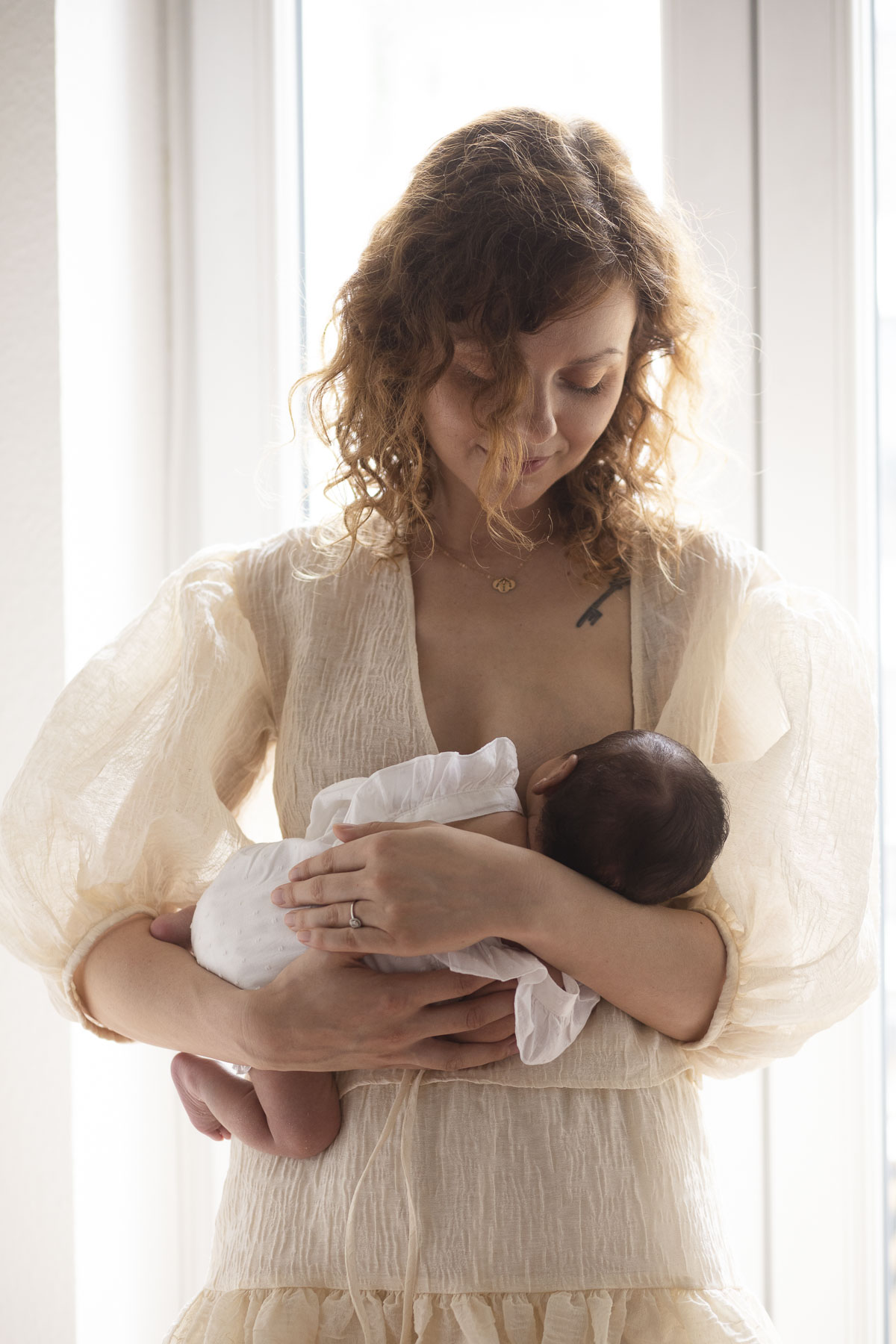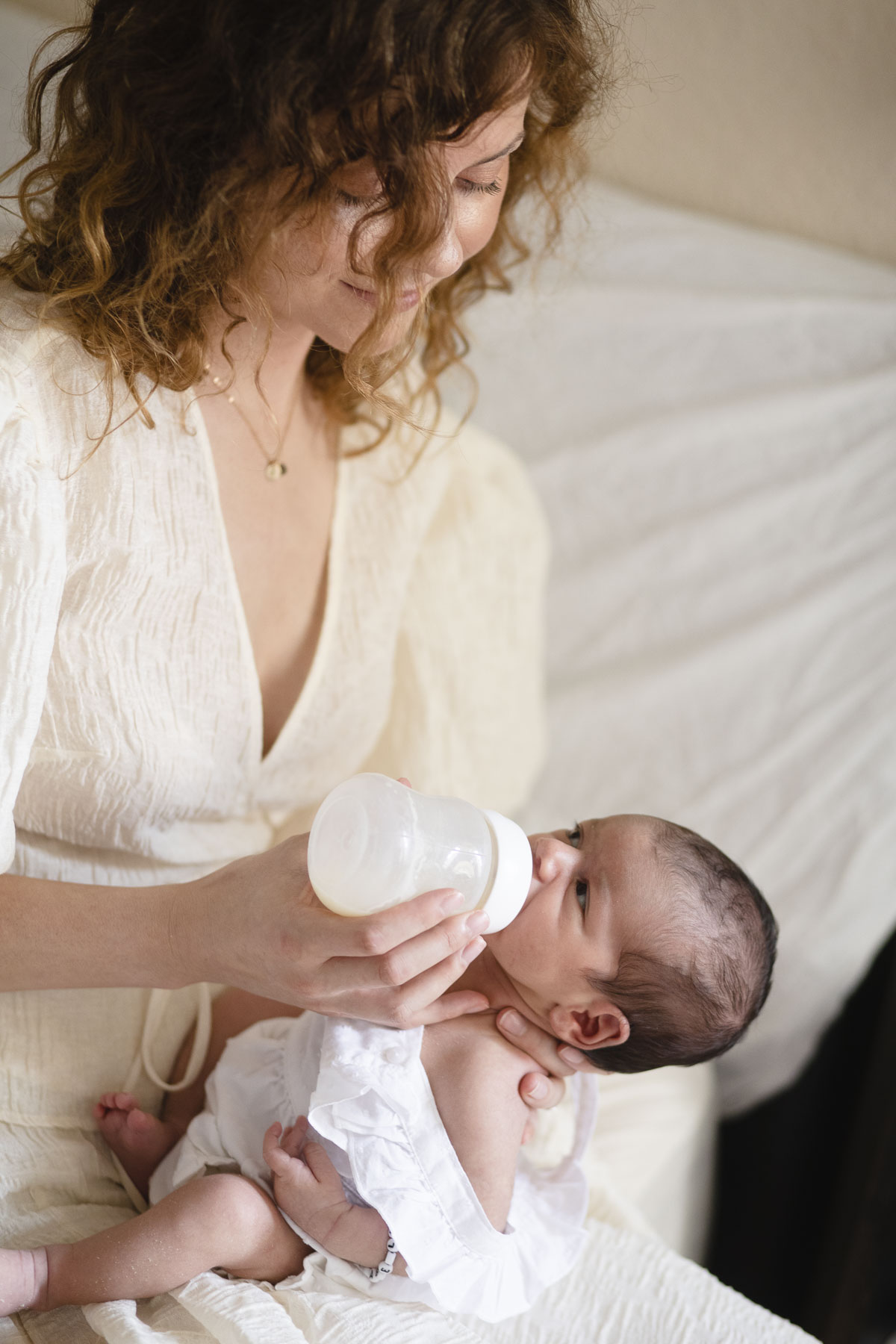In this post, I want to share my journey with breastfeeding, pumping and ultimately switching to formula. The question of whether you should breastfeed or bottle feed is an incredibly personal one. I hope that as more mothers like myself share their experiences, we can begin to relieve some of the shame and guilt inherent in the topic.
Bottle fed or Breastfed, Which is Best?
Breastfeed or bottle feed. Mention the two to any mother and you will get an earful. She may expound the numerous benefits to breastfeeding : “it is the best nutrition you can offer your baby,” “it helps you lose weight postpartum,” “the bonding with your baby while breastfeeding is such a special experience,” etc, etc. Or, she may get defensive, or even teary-eyed, as she shares her struggle to breastfeed her baby. Or, she may tell you she elected to go with formula right from the beginning. Either due to personal preference or because of necessity. Either way, the choice to breastfeed or bottle feed, or even the inability to make the choice, is a hot topic. There is no right or wrong decision between the two. Whether you exclusively breastfeed, pump, give formula or do a mixture of all three, in the end, a happy baby is a fed baby.

After giving birth to my daughter and breastfeeding her for the first time, I was exhausted but thankful that the two of us were safe and sound. Especially after such a complicated birth. We proceeded to spend 48 hours in the hospital. During this time I breastfed my daughter with the help and guidance of the nurses. She seemed happy and content. All was well.
Getting Back to Birth Weight
For the first week after we came home from the hospital, we were lucky that our hebamme (midwife) came to the house everyday. In addition to guiding us newbie parents, she weighed Isabella every third day. Babies always lose weight after birth. However, the rule is that they should not lose more than 10% of their birth weight. Furthermore, they should get back to their birth weight in their first 10-14 days of life.
When Isabella was born on June 1st, she weighed 3530 grams. When she left the hospital two days later she weighed 3454 grams. On June 6th, our hebamme weighed her at 3260 grams and on the 9th, she had lost even more weight — she was now 3190 grams. She was getting very close to the 10% mark and we were not going in the right direction. Furthermore, in the evening, Isabella would cry out of hunger, but when I tried to get her to latch onto the nipple, she would continue crying with the nipple in her mouth. We were desperate, we didn’t know what to do.
The Switch to Pumping
Our hebamme suggested that I pump after every breastfeeding session and then bottle feed that milk to Isabella. When it comes to breast milk, supply equals demand. It was important that I pump the remaining milk in my breast after breastfeeding, because if I did not, my body would produce less milk in the future. In addition, she had me take milk thistle or mariendistel capsules, as they are thought to stimulate milk production.
Bottle Feeding is Easier than Breastfeeding for a Newborn
Breastfeeding is tiring for a newborn baby, and my baby was not drinking all the nutrition she required. Bottle feeding was an easier process for her; she did not have to work as hard as with breastfeeding. At first, I was only pumping 20 or 30 ml at a time. The hebamme showed me how to massage my breast and hand pump all the remaining milk. Pretty soon, I was pumping over 100 ml in one session, and then over 200 ml. I was pumping roughly every 3 hours. I pumped the most during the early hours of the morning, around 4:00 – 6:00 am.
Pumping Resulted in Weight Gain
With all the pumping and bottle feeding, Isabella began gaining weight. By June 25th, she was 3970 grams, well over her birthweight of 3530 grams. We had found a system that worked.

Keeping Formula a Secret
Now, I wish that I could say it was smooth sailing after that, but it was not. Pumping every three hours was exhausting. But not only that, we lived in fear that one day my baby would still be hungry after giving her everything that I had pumped. That one day, it just wouldn’t be enough. And it happened in July, just after she turned one month old. After one horrible night of our poor baby crying from hunger, we decided to buy a box of formula to have on hand ‘just in case.’ We henceforth started supplementing our baby’s diet with formula. Out of shame, we didn’t tell our hebamme. I have no doubt she would have only been supportive, but to us there seemed some stigma attached to formula feeding and we didn’t want her to think of us as failures. So we kept the formula a secret.
What started as 90/10 breastmilk/formula, became a 50/50 split in August and by September, during Isabella’s 4th month of life, we were almost exclusively formula feeding. I was only breastfeeding her first thing in the morning when my supply was the most plentiful.
For our family, bottle feeding and finally switching to formula was the best decision for everyone involved. It was only by pumping and bottle feeding that we were able to help our baby gain the weight she needed in the first few weeks of her life. Bottle feeding also allowed my husband to participate in the feeding process. And finally adding formula into the mix gave me even more freedom — I was no longer necessary to feed my daughter. For me this was liberating, although I can understand how for others it may have a less desirable effect. In the end, the best decision you can make is the one in which everyone is happy and causes the least stress. A healthy and well fed baby, whether with formula, breastmilk, or a combination, is the most important thing in the end.
Up Next: How to Have a Baby in Germany | A Timeline of What to Do & When

